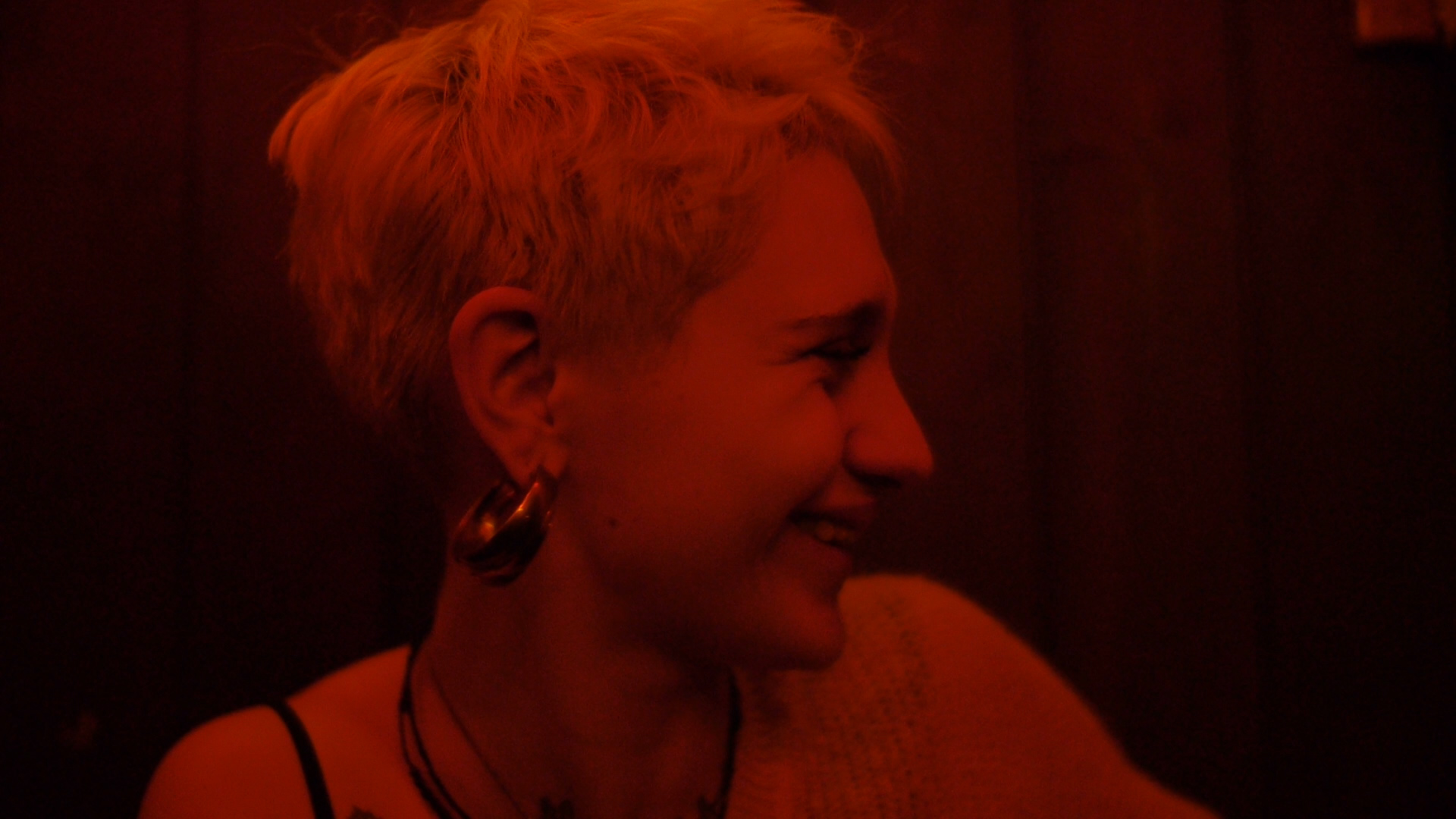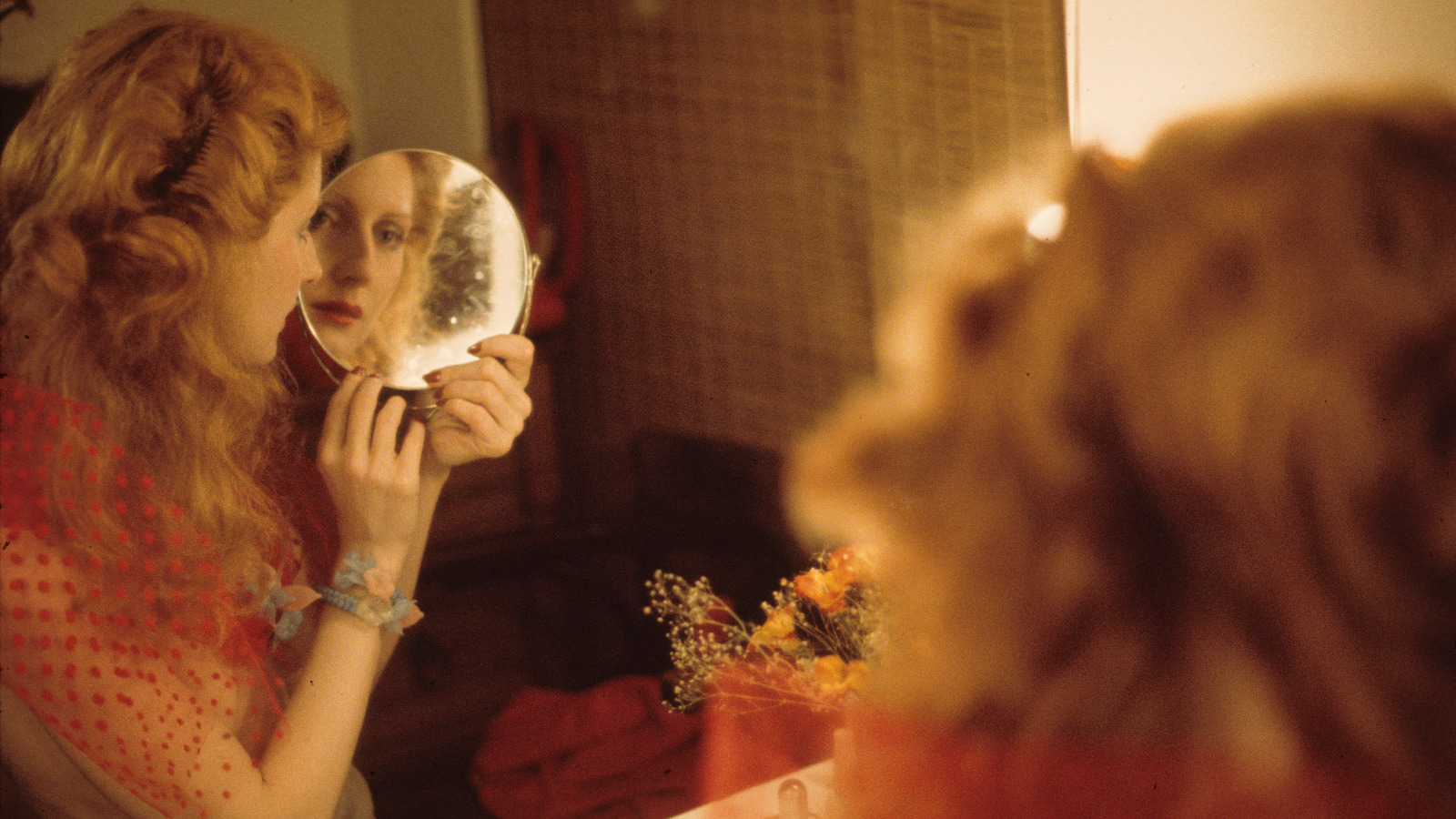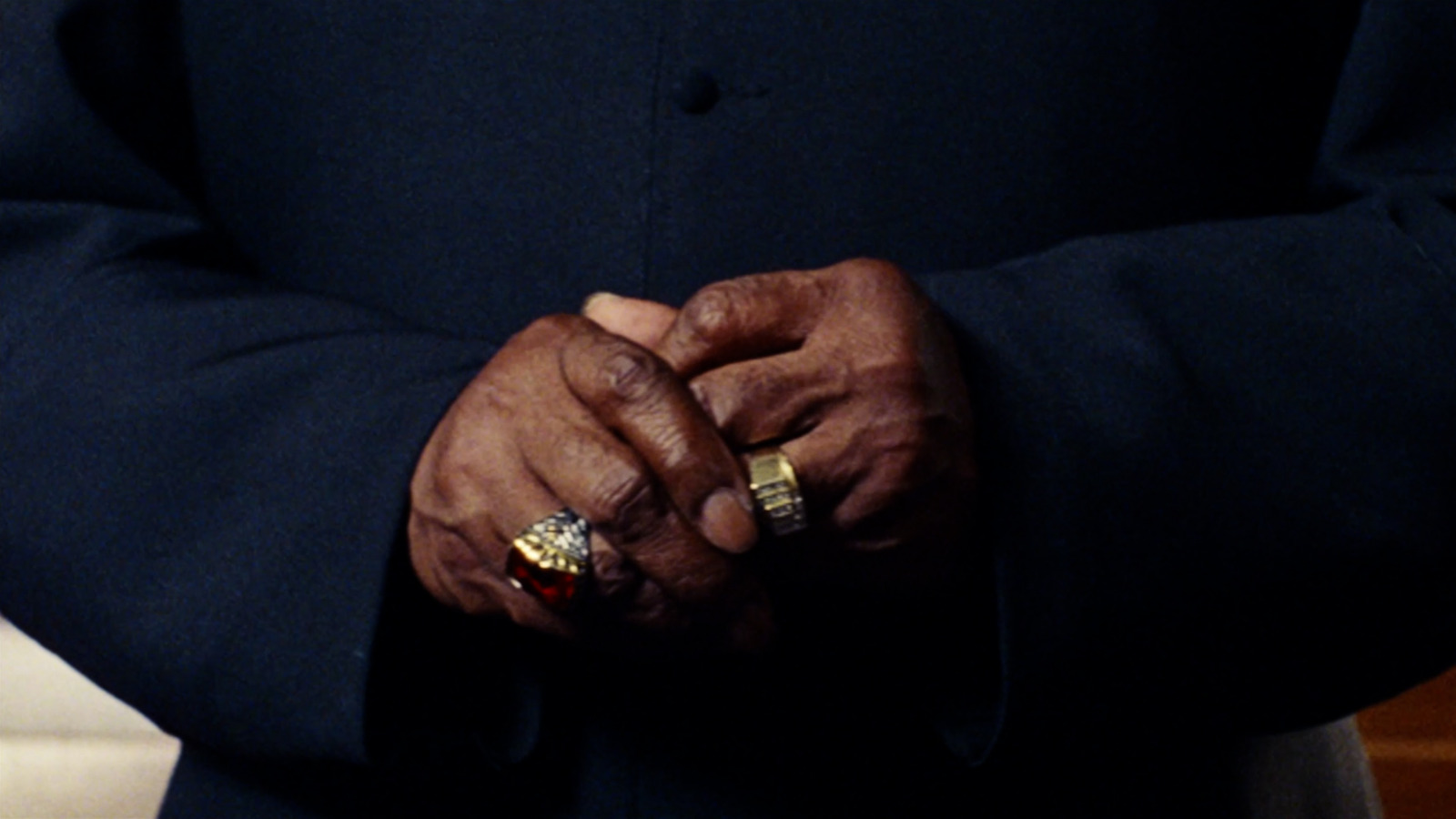Meet Roberta. She’s a young rebellious spirit in Vilnius, Lithuania. Like many people in their late 20s and early 30s, Roberta doesn’t have life figured out. She has no job, and doesn’t seem especially bothered by chronic unemployment. As long as she can afford cigarettes, dog food, tattoos, and admission to the local punk clubs, life’s a breeze.
However, as director Elena Kairyte observes while chronicling Roberta’s story over several years, such instability can lead one’s confidence to unravel. Roberta, which premieres in The Changing Face of Europe programme at Hot Docs, offers an intimate window into a generation’s struggle to find itself in a fast-paced world. Kairyte delicately captures Roberta’s strength and vulnerability with equal measure. She observes her protagonist as she hustles for gig after gig, which slip through her fingers to her mother’s chagrin. But problems with work visas and a global health crisis complicate matters and Roberta soon finds her laissez-faire attitude catching up with her—factors that situate her story amid a larger context of younger adults facing limited work opportunities and lost time.
Moreover, the longevity of the project, marked by Roberta’s constantly changing hairdos, reflects itself in the obvious trust between director and subject. The intimacy of the production invites a frank portrayal of mental health as Roberta makes surprising revelations to Kairyte, which speak to the fragility and complexity of her psyche. Roberta has nobody else to really open up to, and Kairyte’s camera provides an empathetic outlet with which she can confront her anxiety about her life’s path.
Roberta captures the plight of a generation that hungers for more and feels constantly restless. Fuelled by punk music and the protagonist’s spunky sensibility, the film finds a universal tale in a specific story.
POV connected with Elena Kairyte via email ahead of Roberta’s world premiere at Hot Docs to learn more about her process, her character, and all of Robert’s funky hairdos.
POV: Pat Mullen
EK: Elena Kairyte
This interview has been edited for brevity and clarity.
POV: How did you first meet Roberta and what inspired you to tell her story in a film?
EK: Over eight years ago, I embarked on a street casting mission in Vilnius hoping to find unique and captivating faces for a fiction film. That’s when I stumbled upon Roberta. She passed the casting and became an extra in the film’s mass scene. Little did I know, our paths were destined to cross again. Over the next four years, Roberta and I kept bumping into each other all over town, from gritty punk clubs to fancy restaurants. Every time I saw her, she looked like a whole new person. I couldn’t help but wonder: What’s behind all these transformations? Naturally, I knew I had to capture Roberta’s chameleon-like tendencies on film and it was one of the best decisions I ever made. Four years after our initial encounter, Roberta’s constant change became the driving force of the film’s narrative.
POV: What motivated Roberta to participate?
EK: I believe that Roberta’s approach to life is not to question the events that happen to her, but to simply dive into them. That’s what happened with our film. I asked her if she would agree to be filmed, and she said, “OK.” That’s how it all started. I think it was a fun adventure for both of us.
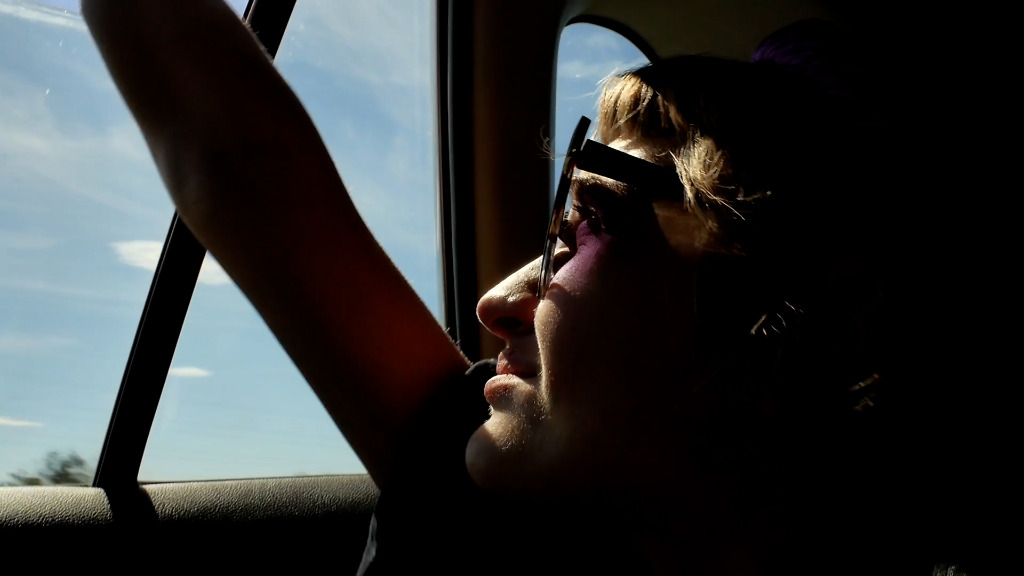
POV: You mention in your production notes that Roberta tested especially well with audiences in the older demographic. What are some of the reasons why they responded to it so strongly?
EK: From the first focus group screenings of our film, it became clear that it resonated most with viewers aged 30 and older. I believe this is because many of them have already lived through experiences similar to those of Roberta and can now revisit them with the perspective of time, appreciating the nuances of the film.
For those over 50 years old in our country, I think the film holds an even deeper meaning. It tells the story of someone born into a free and independent Lithuania. (Until 1990, Lithuania was part of the Soviet Union, where freedom of speech and identity were impossible.) Roberta embodies the essence of this newfound freedom. And yet, the film raises important questions about the true cost of this freedom and the challenges that come with the many possibilities of how to live, what to do, and how to identify yourself in society.
POV: What sort of reactions has the film had with people of Roberta’s age?
EK: I believe that for many viewers, our film serves as a mirror reflecting their current experiences. I can’t forget one girl who approached me after a focus group screening and shared that she finally realised everything was okay with her. Prior to watching the film, she felt abnormal, but seeing another person living a similar experience on screen made her feel less alone. This is one of the most important reviews I’ve received of the film so far.
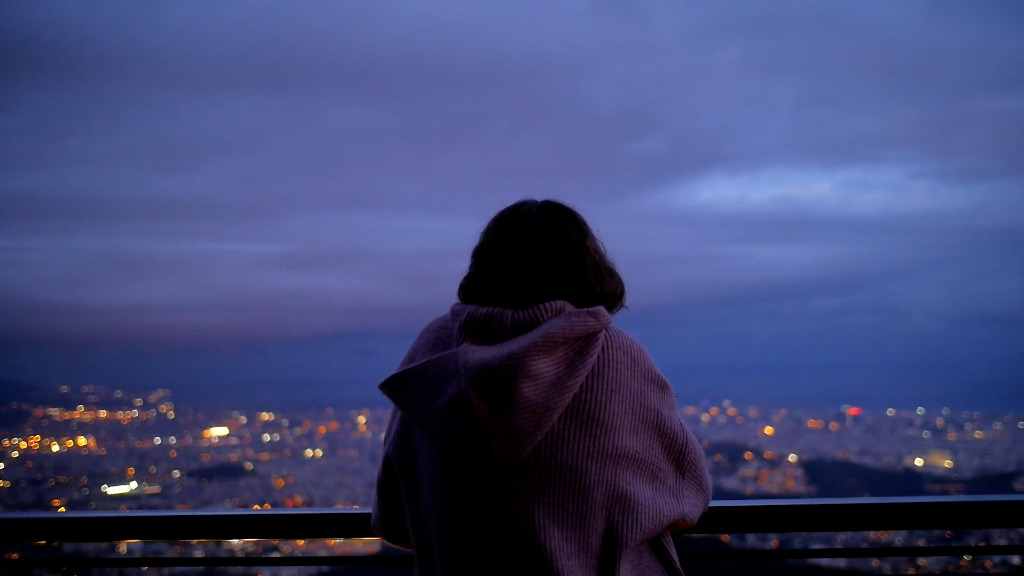
POV: How did you work with Roberta to ensure that production considered her mental health?
EK: I only filmed Roberta when we were both ready for it. I would text Roberta and ask if she wanted to film that day. If she agreed, she would let me know where she would be and what she would be doing. I remember there was a long break when Roberta didn’t want to be filmed for over half a year. I didn’t push it, but after some time, she was ready to continue the story. After the film was completed, we watched it together, discussed it, and now we are letting the film have a life of its own.
POV: I enjoyed the motif with Roberta’s hair because that seemed to be the clearest indicator of the passage of time, but also of her moods, situation in life, and sense of optimism. Is this something you did consciously during the edit, or observed while shooting? The story seems to unfold mostly in continuity based on the changes in her appearance.
EK: While filming, I quickly realised that Roberta’s changing hairstyles would make an excellent leitmotif for the film. During the editing process, our editor Darius Šilėnas and I decided to use a new hairstyle to signal the start of each new episode. We also made sure that the hairstyle reflected the mood and themes of that particular episode. Roberta’s hair became a visual representation of her emotions and experiences, from burnt and dry to natural and beautiful.
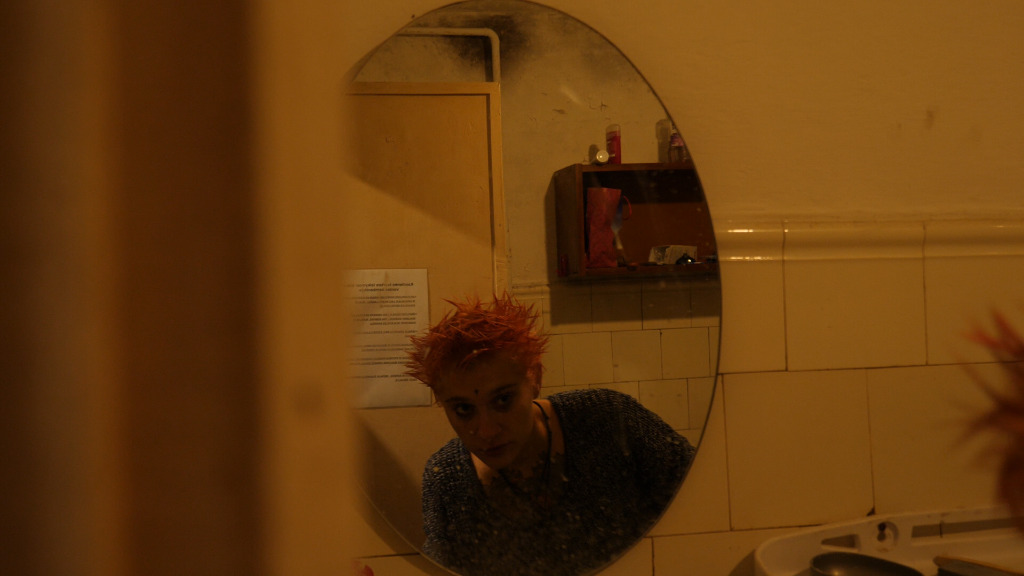
POV: What drew you to the nightclub scenes as well as a motif for Roberta’s character?
EK: I particularly enjoyed the atmospheric parts where she danced, seeming weightless and uncertain. I think this really reflects the tone of our film.
POV: How do you relate to Roberta’s situation?
EK: I can relate to Roberta on many levels. Roberta’s sense of instability in the film mirrors the mood of many people today, particularly in Europe where there is ongoing war in Ukraine. In this context, the future feels uncertain and unpredictable. Also, like her, I am going through a process of self-discovery and trying to find my place in society. Finally I too struggle with my finances and I am not particularly good at math. (Laughs.)
POV: What did you learn about yourself by filming Roberta and spending time with her all these years?
EK: I learned to stay honest with myself and my characters. I never tried to manipulate or direct Roberta. She’s such a real and natural person that I immediately understood that those methods wouldn’t work. Instead, I always aimed to be open, real, and honest. I found that this kind of creative process is the most meaningful.




